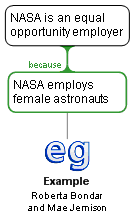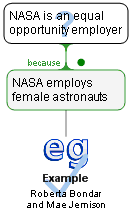The Science Of Scientific Writing Set 7 Set 7-Assessing • Second page • Third page • Fourth page • Example • Exercise 1 • Exercise 2 • Exercise 3 • Exercise 4 • Exercise 5 • Exercise 6 • Final Page Set 7.
OVERVIEW: The way to well-written science
PART I: Paragraphs and Sentences
SET A: Paragraphs: The Maps Behind Them
SET B: Paragraphs: Using Maps to Meet Readers' Expectations
SET C: Paragraphs with Something Extra: Points and Tails
SET D: The Generic Section: Expectations and Maps as Blueprints
SET E: Scientific Sections: The Methods and Results
SET F: Scientific Sections: The Discussion
SET G : Scientific Sections: The Introduction
SET H : Sentences
SET I : The Paper as a Whole
PART II: The Paper and its Sections
SET 1: Argument Parts
SET 2: Indicator Words
SET 4: Locating Arguments in Prose
SET 5: Rationale's Essay Planner
SET 6: Evidence in Arguments: Basis Boxes
Synthesis 1: Position-Early Paragraphs
Synthesis 2: Position-Final Paragraphs
Synthesis 3: Writing a Discussion I
Synthesis 4: Writing a Discussion II
Consider this argument:
'That NASA is an equal opportunity employer is apparent from the fact that they employ female astronauts like Roberta Bondar and Mae Jemison'
Here's the map:

Let's think about
the quality of the reasoning, rather than the
structure. Here's the evaluated map, which uses color coding and icons
to show the evaluation:

This evaluation indicates that the basis gives good support to the reason, but the reason provides only weak support for the position - so we'll take no stand on the position.
Why did we evaluate it this way? Basically the problem is that even though NASA has hired these two women, this argument doesn't tell us whether NASA has hired more than two women, or whether NASA hires people from all races (which an 'equal opportunity employer' would do). To see the step-by-step process of this evaluation click here.
Content of this page drawn in whole or part from the Austhink Rationale Exercises with permission from Austhink.